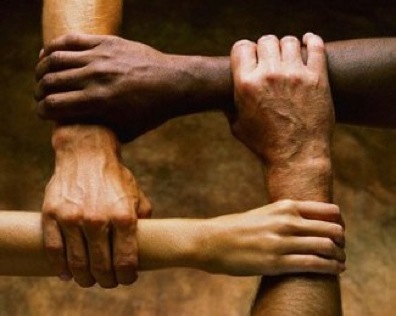The School of Thinking and Feeling
The Class of Love
The School of Thinking and Feeling
The Class of Love
2010-11

With more and more of us living in foreign lands and connections made with others from practically everywhere in the world, relationships are more and more cross cultural. How does this change in decentralized identities and altered connection points affect love relationships and our ability to communicate love? Use research done on love, relating to themes of anthropology, history, sociology, psychology, economic, and media sources to validate findings.
Love and Globalizaton
10-11-04
Love and Globalization
Head of Class
Johanna Gunther
Resident of Love
Interns of Love
Simon
Feyzan
Linda
Egor
Theodora
Leonie
Judith
Matthias
Andrea
Erika
Michael
Corinna
Lisa-Christin
Madlen
Astrid
Severin
Ann-Kathrin
Jasmin
Janick
Sven
Pia
Jelena
Philipp
Lea
Torsten
Sonja
Sharing Love...
Research Project: Love in the Time of Globalization
- Judith
Initial interest/questions: To what extend are cross-cultural relationships different from relationships in one culture group?
What importance and effects do differing linguistic and cultural backgrounds have on cross-cultural relationships?
Does globalization coincide with the increasing number of cross-cultural couples?
Background research
TERM ISSUE OF RESEARCH
globalization definition
dimensions (social, economic, political)
effects (social structures, value systems,
migration schemes)
love construct of love (cultural differences)
expectations and conditions towards love
(influence through family background,
religion, social structure)
expressing love (non-linguistically,
verbally, children’s way of expressing
love)
cross-cultural borders of culture groups (linguistic,
topographic)
cr.-cult. relationship family perception (conflicts, tolerance)
varying definitions of intimacy
foreignness /strangeness /diversity in
relationship
organisation of cross-cultural love (social
media)
patterns, perceptions and attitudes in
cross-cultural couples
intercultural communication schemes
Research resources - book research, qualitative face-to-face interviews, quantitative written inquiry.
Hypothesis
1 Cross-cultural couples feel enriched by their different cultural background in terms of a greater diversity of perspectives and are going with this less often confronted with reaching a point of a tedium state in a relationship.
2 Differing cultural backgrounds cause conflicts and problems in a relationship about communication and expectations and attitudes towards the relationship.
3 Globalization causes an increase in the number of cross-cultural couples.
4 Differing mother tongues in a relationship affect the emotions connected with the linguistic commitment of the love for the partner. 4.1 One of the languages becomes the predominant language of communication in the relationship.
Research process book research:
-background research, analyzing connected/similar research or surveys conducted identification of sample/possible problems for survey
-development/construction of inquiry and interview(operationalization of theoretical constructs and relations in hypothesis)
-execution of survey
-photo essay production
-analysis and comparison of results of research with hypothesis
media used - photography, sound (stock-motion-video)